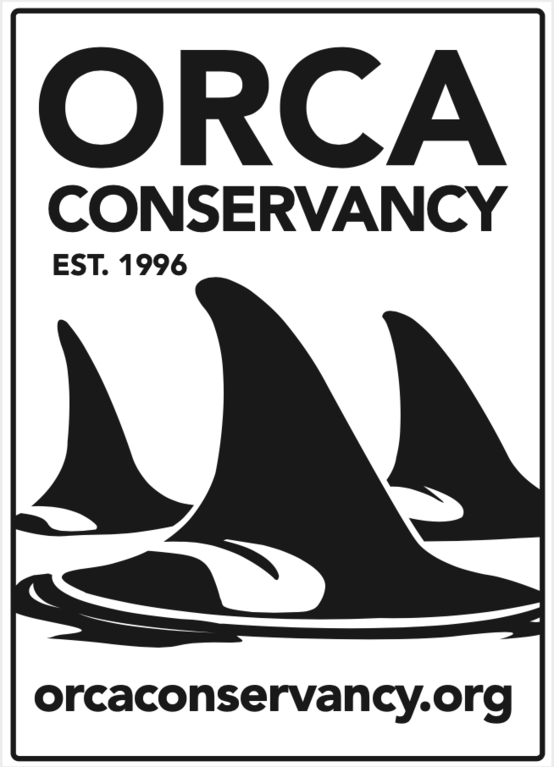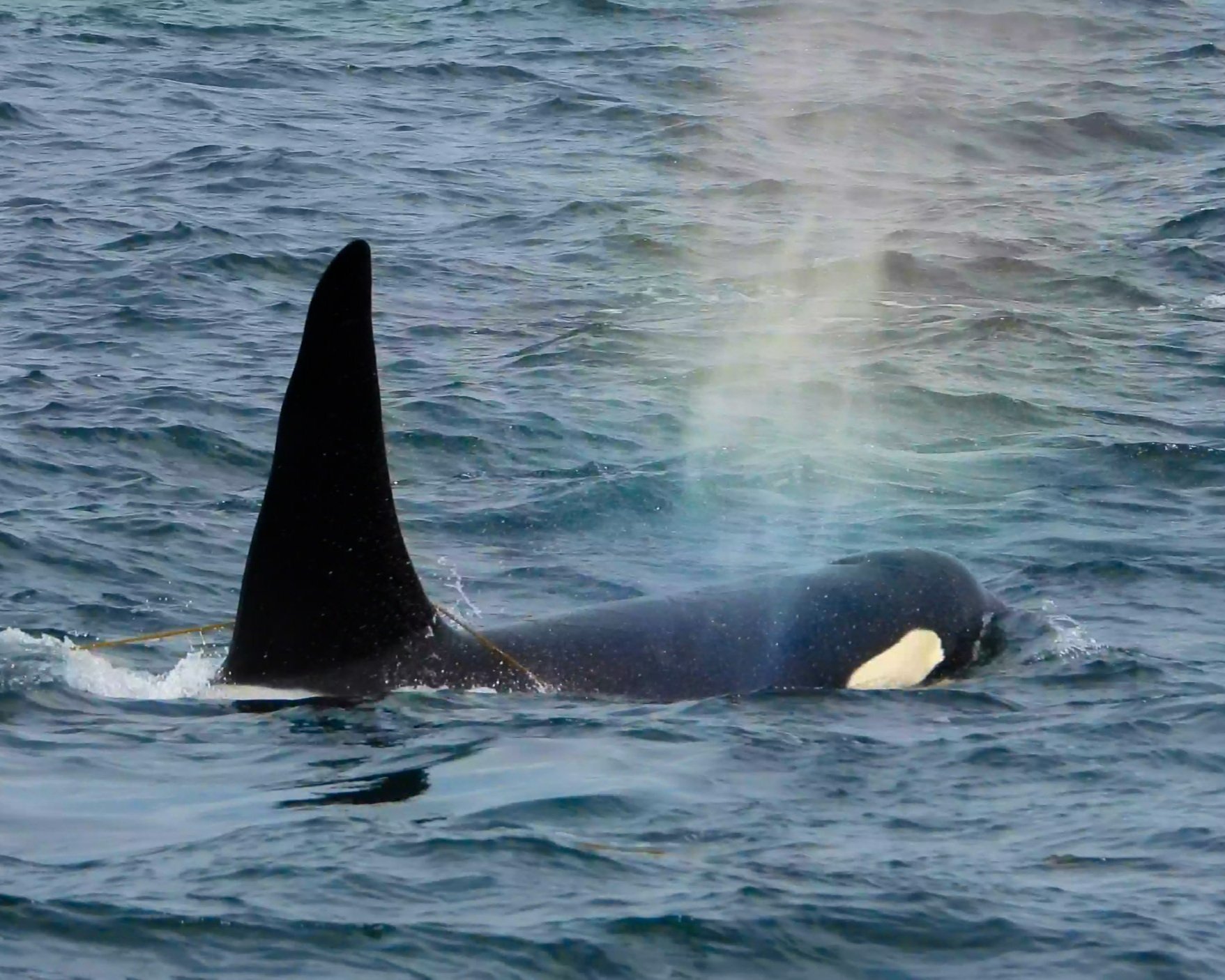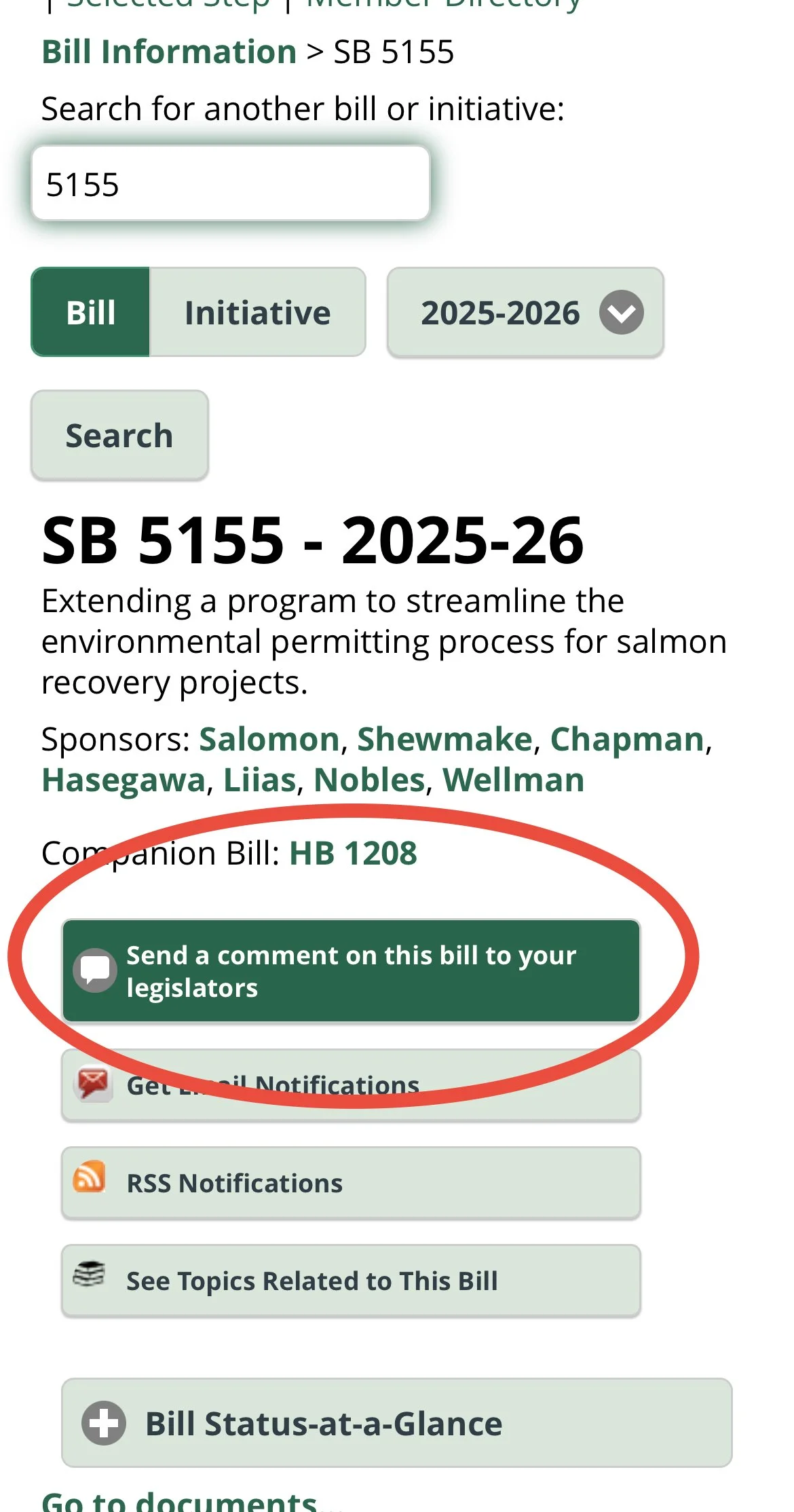
2025 Washington State Legislation
The policies the impact orcas and salmon
Make Your Voice Heard
The critically endangered Southern Resident killer whales are on the brink of extinction. As of today, there are only 73 individuals remaining.
The 2024 Population Census saw the loss of two adult males including L85 Mystery and K34 Cali, as well as the loss of three newborn calves, J60, L128, and J61. These losses are a stark reality, but it’s not too late to help.
One of the most influential ways you can help the critically endangered Southern Resident killer whales and the wild salmon they depend on is taking part in legislation. The policies and laws enacted by the legislators can help shape recovery efforts such as clean water policies, habitat protection, funding, and more.
We have put together this page for you to use as a resource for everything you need to know about policies that impact orcas and how to submit a comment. So let’s get started!
L85 Mystery (1991-2024)
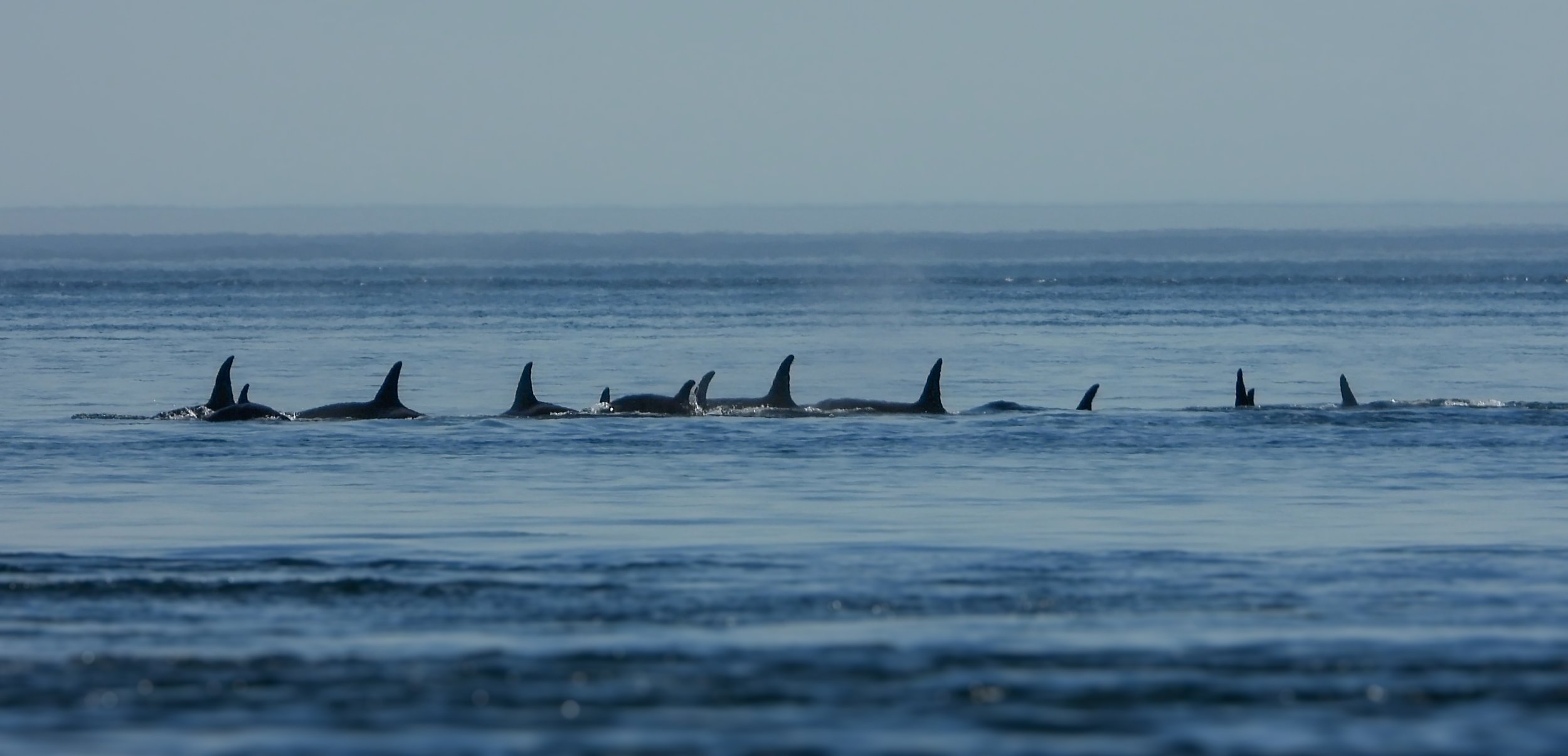
How to Comment On a Bill
How to track and submit a comment on a legislative policy in three easy steps:
Step 1: Each legislative item below will have a button that links to that specific bill or initiative on the Washington Legislature website. Click the button to comment.
Step 2: Click “Send a comment on this bill to your legislators. You will see this at the top on mobile, and on the right column for desktop users.
Step 3: Fill out your information, select your stance, and then enter your comment. There is a 5,000-character limit for submitted comments. We have included some notes and talking points to help guide you in your comments. We recommend writing them in your own words and making your comment personal so it has a greater impact to the policy makers.
Additional Information: You can track the status and dates along with available documents and amendments to learn more about each item.
Note: Only Washington residents residing in the legislative district can submit a comment through the comment portal. Non-Washington Residents can still comment but will have to contact legislators directly.

SB 5155 | HB 1208
Extending a program to streamline the environmental permitting process for salmon recovery projects.
Senate Bill 5155 & House Bill 1208
Both Senate Bill 5155 and the companion House Bill 1208 seek to streamline the salmon recovery process by reducing administrative barriers, allowing for more efficient habitat restoration project implementation.
Orca Conservancy’s Stance: Support
SB 5155 & HB 1208 Explained:
SB 5155 and HB 1208 propose making permanent a pilot program that simplifies the environmental permitting process for salmon recovery initiatives. The streamlined process is designed to reduce administrative barriers, allowing for more efficient implementation of habitat restoration projects critical to the survival of salmon populations. By expediting these projects, the legislation seeks to address the pressing need for habitat restoration in a timely manner.
How These Bills Impact Orca Recovery:
The critically endangered Southern Resident killer whales depend on abundant Chinook salmon, also known as King salmon, to survive and sustain population growth. WIth many stocks listed as threatened or declined, the SRKWs do not have enough to eat. It’s a race against the clock to recover their main food source, and Senate Bill 5155 and companion House Bill 1208 will help to expedite important restoration projects to aid in salmon recovery.
These two bills will increase salmon availability for orcas while expediting the process, providing a lifeline to the Southern Residents by restoring their main food source.
Suggested Talking Points for Support:
The Southern Resident orcas are starving due to a lack of Chinook salmon, their main prey. By streamlining and accelerating habitat restoration projects, these bills will help boost salmon populations by improving spawning grounds and migration corridors.
Many salmon recovery projects are delayed due to complex permitting processes. These bills will cut through bureaucratic red tape, ensuring that critical habitat restoration happens sooner rather than later. This means that salmon populations—and by extension, the orcas that depend on them—can start recovering more quickly.
Salmon habitat recovery benefits more than just salmon and orcas. Healthier salmon runs support entire food webs, including species like eagles, bears, and other marine life that depend on these fish.

HB 1631
Establishing the state marine forest.
House Bill 1631
House Bill 1631 (HB 1631) aims to designate bull kelp forests as the official state marine forest.
Orca Conservancy’s Stance: Support
HB 1631 Explained:
HB 1631 seeks to recognize the ecological importance of bull kelp (Nereocystis luetkeana) by designating it as Washington's official state marine forest. Bull kelp forests play a crucial role in marine ecosystems by providing habitat for various species, including salmon, which are a primary food source for the endangered Southern Resident killer whales. This designation aims to raise awareness and promote conservation efforts for these vital underwater forests.
How This Bill Impacts Orca Recovery:
Bull kelp forests play an important role in salmon recovery and therefore orca recovery. Kelp forests serve as nurseries and refuges for young salmon and their prey, such as small fish and invertebrates. They also offer protection from predators, giving juvenile salmon a better chance of survival before they migrate to the open ocean. In addition to providing habitat for salmon, bull kelp forests also support salmon food sources. Additional conservation benefits of kelp forests also include improving water quality, mitigating climate change, and stabilizing shorelines by reducing erosion, all of which will benefit both orcas and salmon.
Suggested Talking Points for Support:
Designating bull kelp as the state marine forest underscores its importance to Washington's marine ecosystems and the species that depend on them, which include the critically endangered Southern Resident killer whales and the salmon they depend on.
Protecting bull kelp habitats is a direct investment in the recovery of salmon populations, which in turn supports the endangered Southern Resident killer whales.
This bill promotes environmental stewardship and highlights the need for conservation of critical marine habitats.
Bull kelp forests offer a variety of benefits, not just for salmon and orcas, but for the entire ecosystem by supporting biodiversity.

HJM 4004
Requesting Congress to modify the Marine Mammal Protection Act.
House Joint Memorial 4004
UPDATE: HJM 4004 has advanced and is currently on the House second reading calendar, awaiting further action
Requests Congress to modify the Marine Mammal Protection Act (MMPA) to allow for culling of pinnipeds (seals, and sea lions).
Orca Conservancy’s Stance: Oppose
HJM 4004 Explained:
HJM 4004 urges Congress to amend the MMPA to address concerns about marine mammal populations, particularly pinnipeds (seals and sea lions), that are perceived to be impacting endangered salmon stocks. The memorial suggests that current protections may contribute to increased predation on salmon, thereby hindering recovery efforts.
How This Bill Impacts Orca Recovery:
HJM 4004 urges Congress to amend the MMPA to address concerns about marine mammal populations, particularly pinnipeds (seals and sea lions), that are perceived to be impacting endangered salmon stocks. The memorial suggests that current protections may contribute to increased predation on salmon, thereby hindering recovery efforts.
Suggestion Talking Points for Opposition:
Altering the MMPA to reduce protections for certain marine mammals could disrupt the natural balance of marine ecosystems. Predation is a natural process, and reducing predator populations may have unforeseen consequences on the food web, potentially affecting other species, including salmon.
Pinnipeds don’t just eat salmon—they also eat fish that prey on salmon. Pinnipeds are “generalist” predators and prey on a variety of species including invasive species and other predators of salmon. Some fish species pinnipeds help to manage include: Pacific Hake, Spiny Dogfish, Lingcod, Cabezon, Rockfish, and Northern Pike (invasive), which all prey on salmon and juvenile salmon.
There is limited scientific evidence to conclusively demonstrate that reducing pinniped populations will lead to significant improvements in salmon numbers. Focusing on predator control may divert attention and resources from addressing primary factors affecting salmon recovery, such as habitat degradation, water quality, and overfishing.
Transient orcas, also called BIgg’s killer whales, another ecotype present in Washington waters, prey on marine mammals, including seals and sea lions. Reducing pinniped numbers could decrease the prey available to transient orcas, potentially impacting their health and survival. Studies have not been conducted to understand how reducing pinnipeds could impact mammal-eating orcas.
Modifying the MMPA without thorough scientific studies on the potential impacts could lead to unintended ecological consequences. It is essential to understand the complex interactions between species before implementing policies that could alter these dynamics.
For non-Washington or US residents, or anyone unable to use the online portal, you can contact the legislators at the email addresses below:
Representative Rob Chase (R): Rob.Chase@leg.wa.gov
Greg Nance (D): Greg.Nance@leg.wa.gov
Tom Dent (R): tom.dent@leg.wa.gov
Stephanie McClintock (R): Stephanie.McClintock@leg.wa.gov
Adam Bernbaum (D): Adam.Bernbaum@leg.wa.gov
Andrew Engell (R): Andrew.Engell@leg.wa.gov
Joe Schmick (R): joe.schmick@leg.wa.gov
Ed Orcutt (R): ed.orcutt@leg.wa.gov
Larry Springer (D): larry.springer@leg.wa.gov
Matt Marshall (R): Matt.Marshall@leg.wa.gov
Mike Volz (R): mike.volz@leg.wa.gov
Kristine Reeves (D): kristine.reeves@leg.wa.gov
Cyndy Jacobsen (R): Cyndy.Jacobsen@leg.wa.gov
Lisa Parshley (D): Lisa.Parshley@leg.wa.gov
Mark Klicker (R): Mark.Klicker@leg.wa.gov
Carolyn Eslick (R): carolyn.eslick@leg.wa.gov
Suzanne Schmidt (R): Suzanne.Schmidt@leg.wa.gov

Renewable Energy & Recycling
Bills and legislation that impact renewable energy, recycling, and sustainable practices.
SB 5033
Concerning sampling or testing of biosolids for PFAS chemicals.
Orca Conservancy’s Stance: Support
SB 5033 Explained :
SB 5033 mandates the Washington State Department of Ecology to establish a monitoring program for per- and polyfluoroalkyl substances (PFAS) in biosolids produced by wastewater treatment facilities. The bill requires regular sampling and testing to assess PFAS contamination levels, aiming to prevent the spread of these persistent chemicals into the environment through the application of biosolids on agricultural lands and forests.
How This Bill Supports Orca Recovery:
PFAS chemicals are known to be persistent, bioaccumulative, and toxic, posing significant risks to wildlife and ecosystems. By monitoring and controlling PFAS levels in biosolids, SB 5033 seeks to reduce the contamination of water bodies that serve as critical habitats for salmon. Healthier salmon populations directly benefit Southern Resident killer whales, which rely on salmon as their primary food source. Therefore, implementing this bill would contribute to the recovery and sustainability of both salmon and orca populations.
Monitoring and regulating PFAS in biosolids will help prevent these harmful chemicals from entering rivers and streams, safeguarding the health of salmon and other aquatic species.
Reducing PFAS contamination in the environment minimizes exposure risks to humans and wildlife, promoting overall ecosystem health.
By ensuring cleaner habitats for salmon, SB 5033 indirectly supports the food supply of the endangered Southern Resident killer whales, aiding in their recovery efforts.
Implementing regular testing of biosolids for PFAS demonstrates a commitment to proactive and responsible environmental stewardship.
Suggested Talking Points for Support:
HB 1328 | SB 5359
Accelerating the development of clean energy and transmission.
Orca Conservancy’s Stance: Support
HB 1328 & SB 5359 Explained :
House Bill 1328 and companion Senate Bill 5359 aim to expedite the development of clean energy projects and the necessary transmission infrastructure in Washington State. The legislation acknowledges the state's goal to double its electricity consumption by 2050 to meet clean energy demands efficiently. To achieve this, the bills propose a framework that provides information, planning, and support for accelerating clean energy projects while safeguarding the environment, overburdened communities, and tribal rights and resources.
How These Bills Support Orca Recovery:
Transitioning to clean energy sources will have several positive impacts on local ecosystems, including salmon and orca populations. These benefits include reduction in water pollution and climate change mitigation.
Suggested Talking Points for Support:
Transitioning to clean energy reduces water pollution from fossil fuel extraction and industrial runoff, helping to protect critical salmon spawning and rearing habitats.
Southern Resident orcas rely on healthy salmon populations for survival. Reducing pollution and mitigating climate change supports Chinook salmon recovery, their primary food source.
Climate change affects ocean temperatures and stream flows, disrupting salmon migration and reproduction. Clean energy expansion reduces greenhouse gas emissions, helping to stabilize these ecosystems.
Investing in clean energy creates green jobs while ensuring that economic development does not come at the cost of critical fish and wildlife habitats.
These bills promote careful planning of energy projects to avoid harming salmon streams, orca habitats, and tribal resources, ensuring clean energy growth is both fast and environmentally responsible.
HB 1462 | SB 5438
Reducing greenhouse gas emissions associated with hydrofluorocarbons.
Orca Conservancy’s Stance: Support
HB 1462 & SB 5438 Explained :
HB 1462 and SB 5438 are companion bills aiming to reduce greenhouse gas emissions by targeting hydrofluorocarbons (HFCs). HFCs are potent greenhouse gases commonly used in refrigeration, air conditioning, and foam-blowing applications. The proposed legislation seeks to phase down the use of HFCs and promote the adoption of environmentally friendly alternatives, aligning with state and global climate goals.
How These Bills Support Orca Recovery:
Reducing HFC emissions contributes to mitigating climate change, which is crucial for the preservation of marine ecosystems. Climate change has led to rising water temperatures and altered river flows, adversely affecting salmon populations. Since Southern Resident orcas primarily feed on Chinook salmon, a decline in salmon directly threatens orca survival. By addressing HFC emissions, these bills aim to curb climate change impacts, thereby supporting the recovery of both salmon and orca populations.
Suggested Talking Points for Support:
Phasing down HFCs will significantly reduce greenhouse gas emissions, helping to stabilize the climate and protect marine habitats essential for salmon and orcas.
Adopting environmentally friendly refrigerants reduces the risk of chemical pollutants entering waterways, ensuring cleaner habitats for aquatic life.
This legislation positions Washington State as a leader in environmental responsibility by aligning with international efforts to reduce HFC usage.
Encouraging the transition to greener technologies fosters innovation and supports a sustainable economy while preserving natural resources.
HB 1303 | SB 5380
Increasing environmental justice by improving government decisions.
Orca Conservancy’s Stance: Support
HB 1303 & SB 5380 Explained :
HB 1303 and SB 5380, known as the Cumulative Risk Burden (CURB) Pollution Act, aim to enhance environmental justice in Washington State by integrating cumulative pollution impact assessments into governmental decision-making processes. These bills require the preparation of Environmental Justice Impact Statements for proposed projects, evaluating existing environmental stressors, potential adverse impacts, and cumulative effects on communities disproportionately affected by pollution. The legislation defines "disproportionate impact" as any project that exacerbates existing environmental or health issues in vulnerable areas.
How These Bills Support Orca Recovery:
By mandating comprehensive assessments of environmental impacts, HB 1303 and SB 5380 aim to prevent additional pollution in habitats critical to salmon and orcas. Reducing cumulative pollution ensures cleaner waterways, promoting healthier salmon populations, which are the primary food source for Southern Resident orcas. This proactive approach supports the recovery and sustainability of both species by addressing environmental injustices that have historically led to habitat degradation.
Suggested Talking Points for Support:
Implementing Environmental Justice Impact Statements helps safeguard habitats essential for salmon and orcas by preventing projects that could increase pollution in these areas.
Environmental Policies: Prioritizing communities disproportionately affected by pollution ensures that environmental protections are inclusive and just, benefiting both human and wildlife populations.
Reducing cumulative pollution not only improves human health outcomes but also fosters biodiversity, supporting the intricate food webs that sustain salmon and orca populations.
Incorporating cumulative impact assessments into decision-making processes leads to more informed and effective environmental regulations, promoting long-term ecological balance.
HB 1670 | SB 5450
Increasing transparency regarding sewage-containing spills.
Orca Conservancy’s Stance: Support
HB 1670 & SB 5450 Explained :
HB 1670 and SB 5450 are companion bills aiming to enhance public awareness and response to sewage spills. These bills propose the creation of a real-time public notification system, including a mapping interface, to inform residents about sewage spills in their areas. Currently, while treatment plant operators report spills to the Department of Ecology, this information isn't readily accessible to the public. The proposed legislation seeks to bridge this gap by ensuring timely and transparent communication regarding such environmental incidents.
How These Bills Support Orca Recovery:
Sewage spills introduce harmful pollutants into waterways, degrading water quality and adversely affecting aquatic life. Salmon, which are highly sensitive to water pollution, can experience increased mortality rates and disrupted reproductive cycles due to contaminated habitats. Since Southern Resident orcas primarily feed on Chinook salmon, a decline in salmon populations directly threatens orca survival. By implementing a system that ensures prompt public notification of sewage spills, these bills aim to facilitate quicker responses to contamination events, thereby minimizing environmental damage and supporting the recovery of both salmon and orca populations.
Suggested Talking Points for Support:
Timely notifications about sewage spills empower communities to take necessary precautions, reducing exposure to harmful pollutants.
Improved transparency and rapid response to sewage spills help maintain cleaner waterways, essential for the health of salmon and, consequently, the orcas that depend on them.
Establishing a public notification system fosters trust and ensures that environmental incidents are managed with transparency and urgency.
Real-time data on sewage spills can inform better infrastructure planning and pollution prevention strategies, leading to long-term ecological benefits.
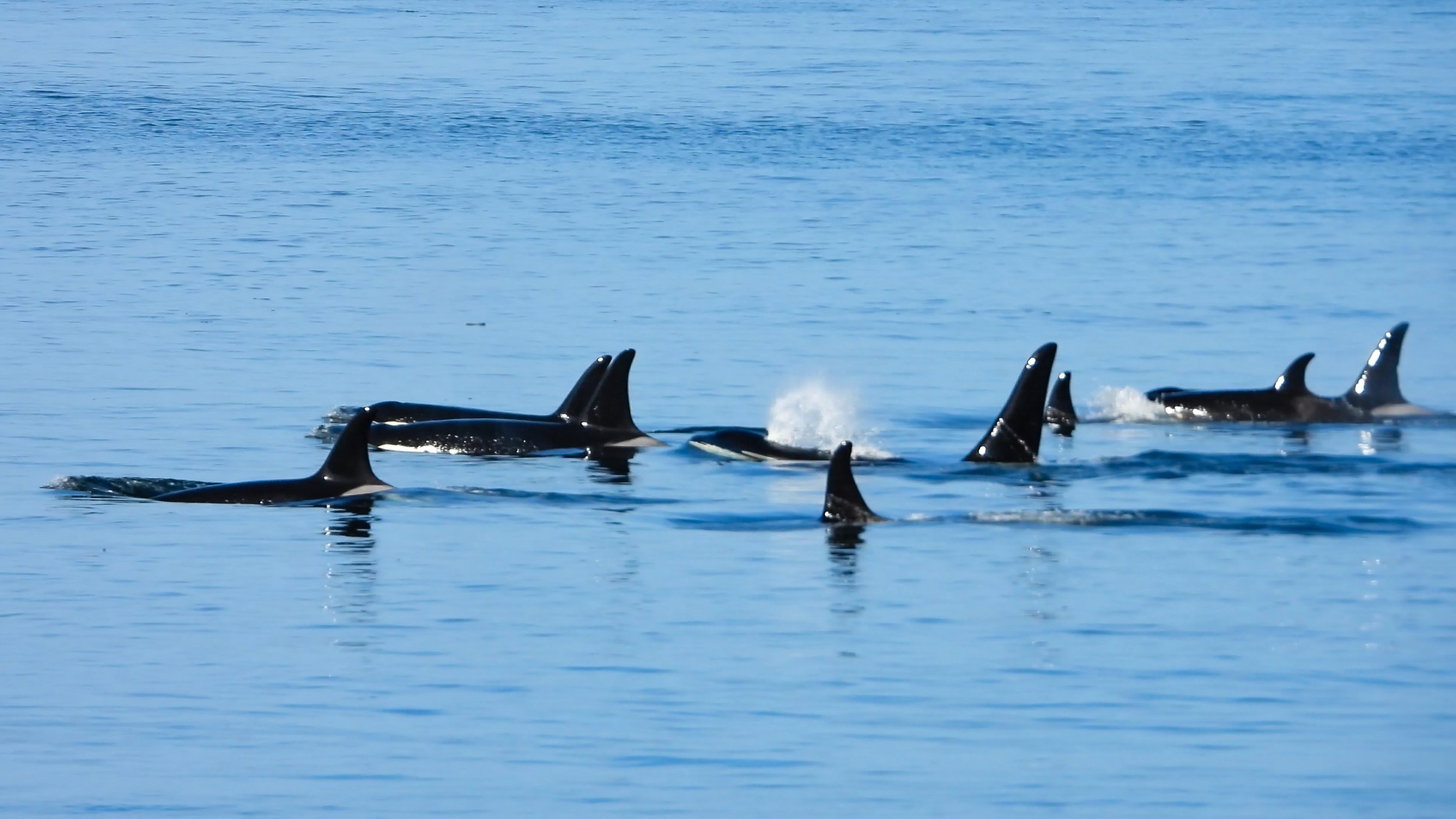
Donate
You can further support orca recovery efforts by making a donation. Your tax-deductible contribution will help make our work possible. Learn about projects and how we are working to recover the critically endangered Southern Resident orcas.
